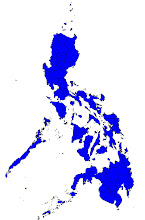http://www.philstar.com/Article.aspx?articleId=555028&publicationSubCategoryId=67
MANILA, Philippines - For the first time in the country’s election history, the Commission on Elections (Comelec) will put up special polling precincts in detention cells with more than 100 inmates to enable them to vote on May 10.
But Comelec Commissioner Rene Sarmiento said those in jails with less than 100 detainees would have to apply in courts for “escorted voting” in regular polling centers.
“It has been decided that we will set up special polling precincts in detention facilities to be manned by a Special Board of Election Inspectors. By doing this, we will be able to uphold the inmates’ rights (of suffrage),” Sarmiento said in a telephone interview.
The Comelec and the Commission on Human Rights (CHR) have worked together so that inmates whose cases are still pending in court can still vote in the coming elections.
Earlier, CHR chairperson Leila de Lima said that while the Omnibus Election Code prohibits the setting up of polling places “within prison compound,” the term “prison compound” could be interpreted as referring only to the facility for convicts.
De Lima said the Comelec set a precedent when it sent election officers to the rest house of former President Joseph Estrada in Tanay, Rizal where he was under house arrest for plunder.
The poll body also dispatched election officers to a military camp in Sta. Rosa, Laguna where Moro National Liberation Front founder Nur Misuari was detained on rebellion charges.
Sarmiento said the civil rights of inmates – including the right to vote – are not yet considered suspended unless they are convicted in court.
But Sarmiento said that since it would be taxing for the Bureau of Jail Management and Penology (BJMP) and the Bureau of Corrections to provide escorts to all detainees on election day, the poll body decided to bring the polling centers to jails instead.
Inmates in jails that do not have more than 100 detainees will have to apply for escorted voting to be able to go to regular polling centers in public schools.
He said government lawyers or lawyers from non-government organizations could help these inmates prepare their applications.
BJMP records show that there are some 50,000 inmates awaiting trial across the country, but only 23,657 of them have registered for the May polls.
Some 13,000 of them are in various detention facilities in Metro Manila
But Comelec Commissioner Rene Sarmiento said those in jails with less than 100 detainees would have to apply in courts for “escorted voting” in regular polling centers.
“It has been decided that we will set up special polling precincts in detention facilities to be manned by a Special Board of Election Inspectors. By doing this, we will be able to uphold the inmates’ rights (of suffrage),” Sarmiento said in a telephone interview.
The Comelec and the Commission on Human Rights (CHR) have worked together so that inmates whose cases are still pending in court can still vote in the coming elections.
Earlier, CHR chairperson Leila de Lima said that while the Omnibus Election Code prohibits the setting up of polling places “within prison compound,” the term “prison compound” could be interpreted as referring only to the facility for convicts.
De Lima said the Comelec set a precedent when it sent election officers to the rest house of former President Joseph Estrada in Tanay, Rizal where he was under house arrest for plunder.
The poll body also dispatched election officers to a military camp in Sta. Rosa, Laguna where Moro National Liberation Front founder Nur Misuari was detained on rebellion charges.
Sarmiento said the civil rights of inmates – including the right to vote – are not yet considered suspended unless they are convicted in court.
But Sarmiento said that since it would be taxing for the Bureau of Jail Management and Penology (BJMP) and the Bureau of Corrections to provide escorts to all detainees on election day, the poll body decided to bring the polling centers to jails instead.
Inmates in jails that do not have more than 100 detainees will have to apply for escorted voting to be able to go to regular polling centers in public schools.
He said government lawyers or lawyers from non-government organizations could help these inmates prepare their applications.
BJMP records show that there are some 50,000 inmates awaiting trial across the country, but only 23,657 of them have registered for the May polls.
Some 13,000 of them are in various detention facilities in Metro Manila




No comments:
Post a Comment